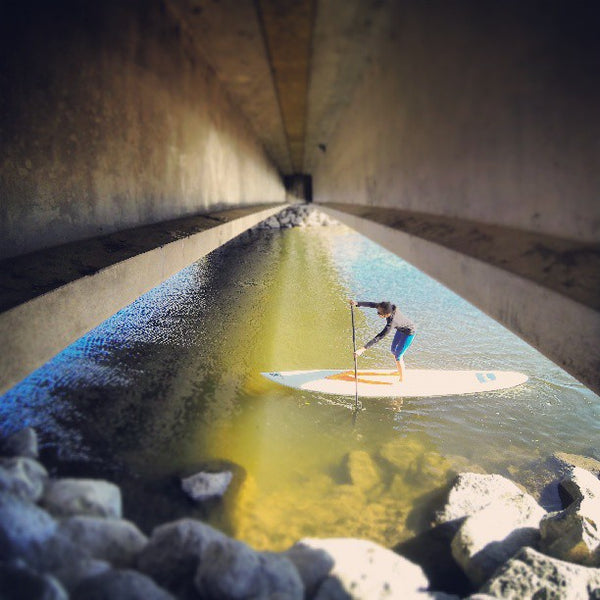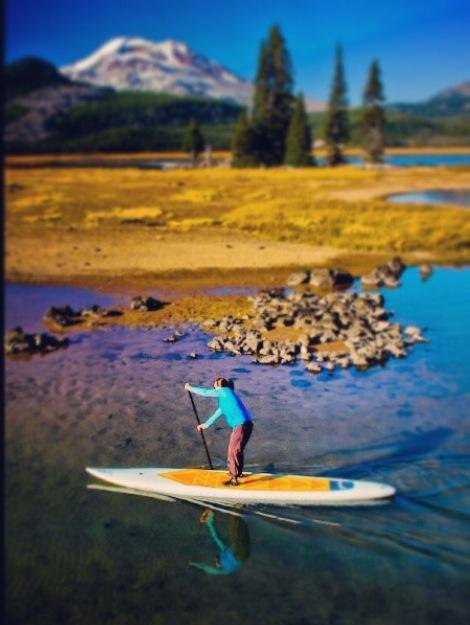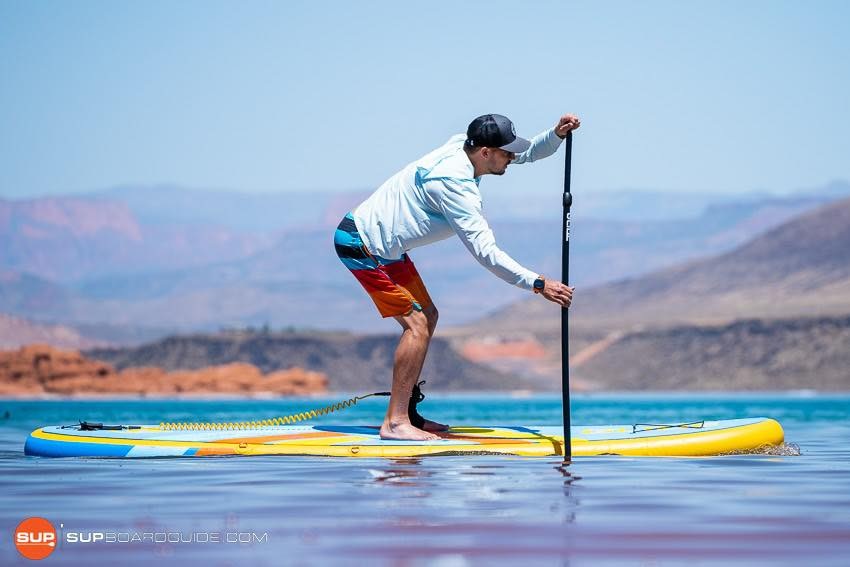
Nutritional Strategies for Elevating Your Paddle Board Performance
Key Highlights
- The Energy Dynamics of Paddle Boarding: Understand the caloric demands based on activity intensity and type.
- Pre-Paddle Boarding Nutrition: Importance of complex carbohydrates for sustained energy.
- Hydration: Strategies for maintaining optimal hydration before, during, and after paddleboarding.
- Mid-Session Nutrition: Choosing the right snacks for energy and electrolyte balance.
- Post-Paddle Board Nutrition: Focusing on protein for muscle recovery and antioxidants for reducing oxidative stress.
- Customizing Your Nutrition Strategy: Tailoring your nutritional intake based on personal needs and consulting professionals for optimal performance.
Introduction

Paddle boarding isn't just a sport; it's a lifestyle that combines balance, strength, and endurance. To get the most out of your paddle boarding sessions, nutrition plays a crucial role. From providing the energy needed for those long paddles to aiding recovery afterward, the right diet can significantly impact your performance and overall enjoyment. This guide will explore how nutrition supports your paddle boarding adventures, ensuring you stay fueled, hydrated, and ready for action.
The Energy Dynamics of Paddle Boarding
Understanding the energy demands of paddle boarding is essential. The number of calories you burn can vary based on your body weight, the intensity of your activity, and the type of paddle boarding you do, whether it's touring, yoga, or racing. For instance, a 160-pound individual can burn between 305 to 430 calories per hour while paddle boarding. Given this significant energy expenditure, it's crucial to fuel your body properly before, during, and after your sessions.
Fueling Up: Pre-Paddle Boarding Nutrition
Complex Carbohydrates: The Slow-Release Energy Source
Before heading out on the water, it's important to eat foods that provide sustained energy. Complex carbohydrates are perfect for this. Unlike simple carbs, which give a quick but short-lived energy boost, complex carbs break down slowly, providing a steady release of energy to keep you going. Foods like whole grains, beans, lentils, and starchy vegetables are excellent sources. Whether you're embarking on a long-distance tour or engaging in a vigorous SUP yoga session, these foods will help maintain your stamina.
Hydration: Your Vital Ally
Staying hydrated is critical when paddle boarding. The combination of sun exposure, wind, and physical exertion can quickly deplete your body's water reserves, leading to dehydration. This can negatively impact your balance, strength, and endurance. To stay hydrated, drink plenty of water before your session and consider taking a water bottle or hydration pack with you on the board.
Mid-Session Nutrition: Keeping the Energy Flow
Smart Snacking for Sustained Energy
Long paddle boarding sessions can be draining, but the right snacks can help maintain your energy levels. Look for healthy, portable, and non-perishable options. Nuts and seeds are packed with healthy fats that provide sustained energy. Energy bars, especially those made with whole food ingredients, are convenient and nutritious. A piece of fruit can also serve as a quick and refreshing energy boost.
Maintaining Electrolyte Balance

As you paddle, you lose not just water but also electrolytes like sodium, potassium, and magnesium through sweat. These minerals are essential for muscle function and maintaining fluid balance. To replenish lost electrolytes and prevent issues like muscle cramps and fatigue, consider drinking a sports drink or an electrolyte-rich beverage. Coconut water is a natural choice that's rich in potassium and can help keep your electrolyte levels balanced.
Post-Stand Up Paddle Board Nutrition: Recovery and Rebuilding
Protein: The Building Blocks of Recovery
After an intense paddle boarding session, your muscles need protein to recover and rebuild. Protein is crucial for repairing the muscle tissues that have been worked during your paddling. Lean meats, fish, eggs, dairy, and plant-based proteins like legumes, tofu, and tempeh are excellent choices. Pairing these protein sources with a portion of complex carbohydrates can further enhance recovery by replenishing the glycogen stores in your muscles.
Antioxidants: Protecting Your Body
Physical activity generates oxidative stress, but antioxidants can help counteract this by neutralizing harmful free radicals produced during exercise. Eating a diet rich in colorful fruits and vegetables can provide a wide array of antioxidants, promoting overall recovery and well-being. Berries, citrus fruits, leafy green vegetables, and other brightly colored produce are all good choices.
Customizing Your Nutrition Strategy
Tuning into Your Body's Needs
Every paddler is unique, with different body types, fitness levels, and paddle boarding styles. A 200-pound racer will have different nutritional needs than a 120-pound recreational paddler. It's important to listen to your body, recognize your hunger and fullness cues, and be mindful of how different foods affect your performance. Adjusting your diet to suit your individual needs can help you get the most out of your paddle boarding sessions.
Consulting a Professional

If you're serious about optimizing your paddle boarding performance and want a more tailored nutrition plan, consider consulting a sports dietitian. They can provide personalized advice based on your specific goals, needs, and preferences, helping you to perform at your best.


